10 Steps to Become a Freight Broker in 2024
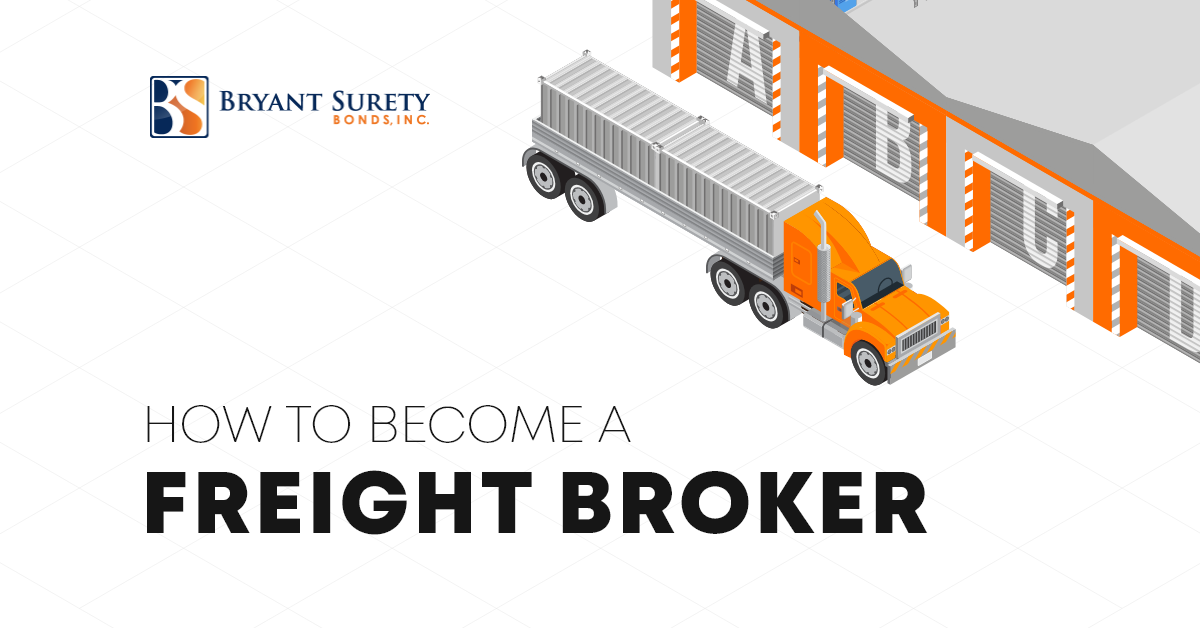
- 1. Industry Experience and Training
- 2. Register a Legal Business in Your State
- 3. Create a Business Plan
- 4. Obtain a Broker License
- 5. Obtain a Freight Broker Bond
- 6. Obtain the Necessary Insurance
- 7. Name Process Agents for Each State You Will Operate In
- 8. Set Up Your Office
- 9. Find Shipper and Carrier Clients
- 10. Start Brokering Freight
As more and more people rely on shipping to get their products from one place to the next, freight brokers are more in demand than ever before. If you're thinking of starting your own freight broker business, you'll need to complete some training programs and meet some legal requirements. Read on for an in-depth look at the extensive process of becoming a freight broker in the United States.
1. Industry Experience and Training
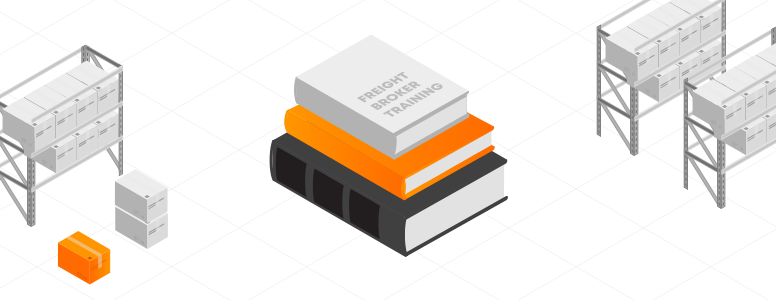
This first step is optional. However, many companies will only do business with freight brokers who show that they have industry knowledge and experience. It's a good idea to attend a freight broker school to obtain a thorough understanding of the industry. Most training programs will last between two and four weeks.
Apart from training programs, it's a good idea to get some hands-on industry knowledge. One of the easiest ways to do this is to work for a brokerage company. An entry-level position will provide you with vital experience in working with trucking companies, truck drivers, and shippers.
2. Register a Legal Business in Your State
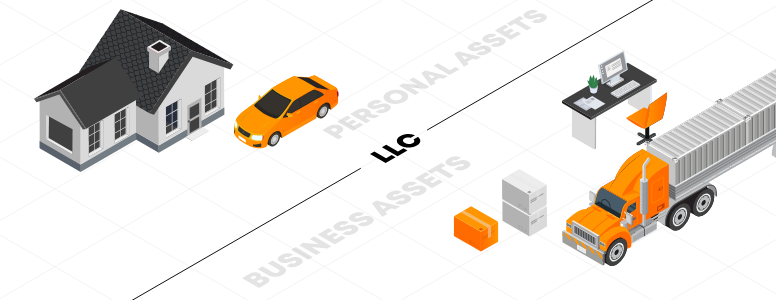
Once you're ready to start your freight broker business, it's time to register. You'll need to come up with a business name and register that name with your state's Office of the Secretary of State. You'll also need to apply for an employer identification number (EIN) with the IRS.
When you register a new business, you'll have four main types of entities to choose from: a partnership, corporation, sole proprietorship, or limited liability company. It's best to consult a business attorney to determine what the best structure would be for your intended business.
It's important to note that if you plan on having a fleet of vehicles as part of your freight business, you'll need to register with your state's Department of Transportation.
3. Create a Business Plan

Next, you'll need to write a complete business plan. This will outline what your business will do, how it will acquire necessary assets, and what its goals are for the future. Think of your business plan as a full-blown game plan for how your enterprise is going to operate.
When it comes to obtaining funding for your business, most lenders will require you to have a thorough business plan. This gives them the necessary insight into what you anticipate and what they can expect going forward.
Most freight businesses will need a source of funding during their first few months of operation. Keep in mind that you may have to pay carriers before you get checks from your shippers. Liquidity is key for any successful freight broker.
4. Obtain a Broker License
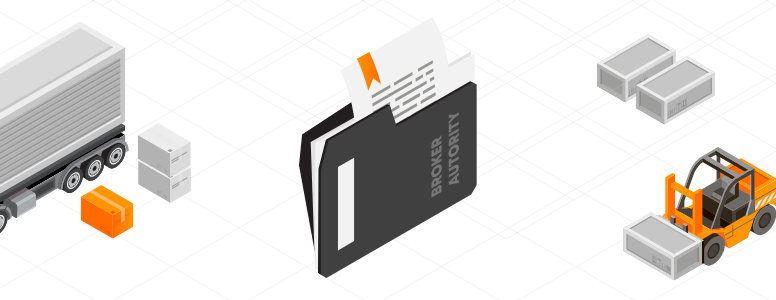
Once you've registered your business, you're eligible to obtain a freight broker license. You'll need to complete an application through the online Unified Registration System. Through this portal, you can register and submit the required documentation to the FMCSA.
You'll also need to apply for operating authority, also known as an MC number. This gives you specific authority to conduct certain freight operations. Depending on the specific type of freight that you'll be moving, you may need a Broker of Property or Broker of Household Goods from the Broker Authority.
There are some key requirements that you'll have to undergo to obtain your motor carrier (MC) number. These include:
- Supply business and personal information
- An EIN if you plan on hiring employees
- A $300 application fee per authority
- A freight broker bond
When you submit all the information above, your application will be ready to be approved. You'll receive a grant letter that has your new MC number on it. You'll have to wait 10 days for your license to become official. This period allows for anyone who wishes to protest your licensing to do so. If no protests are reported, you'll receive your operating authority.
It's crucial to note that if you want to have carriers as part of your freight brokerage, you'll need to apply for a U.S. Department of Transportation (USDOT) number. You'll do this online along with applying for your broker authority.
5. Obtain a Freight Broker Bond
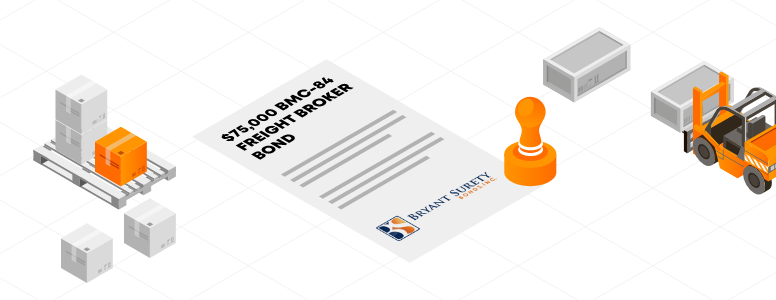
To satisfy the $75,000 bond requirement, you have two main options: the BMC-84 bond and the BMC-85 bond. The BMC-84 is known as a freight broker bond, while the BMC-85 is known as a trust fund agreement. You'll need to obtain this bond requirement within 90 days after publishing your registration with the FMCSA.
Many are confused about what they have to cover for a bond. You don't need to have $75,000 in cash as your security. Rather, the bond agency will charge you a small percentage of the overall bond amount, known as the bond premium.
The amount of this bond premium will depend on your business and personal finances. The more stable your credit is, the lower your bond premium will be. It's also important to note that you'll have to pay this premium every year to maintain your surety bond.
This bond isn't optional. Rather, it's a necessity to help ensure the future of your business, customers, and employees. A bond helps to provide money if you violate your legal obligations and must pay out damages to those who suffered due to your actions or omissions. While $75,000 is the minimum requirement to obtain an operating license, you can get surety bonds for just about any amount you would like.
6. Obtain the Necessary Insurance
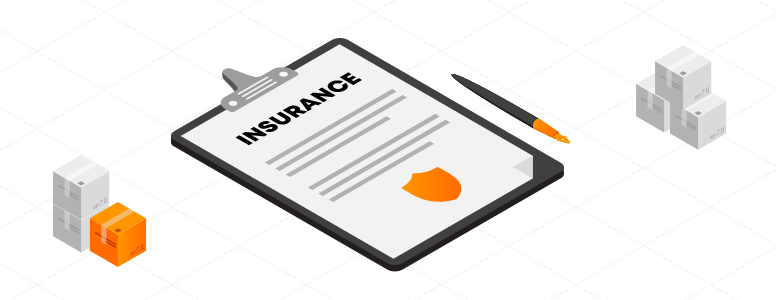
While not all states require that freight brokers invest in cargo insurance, this type of coverage is well worth the peace of mind it offers you. When issues occur, you can have a safety net to cover them instead of needing to pay out of pocket. It's also a good idea to look into general liability and property insurance. If you plan on being a freight carrier alongside a broker, you'll also need contingent cargo insurance to operate legally.
It's important to note that businesses with more than two employees will need to obtain workers' compensation insurance from their state. The name of the agency responsible for issuing this insurance varies. Some states require that you purchase workers’ compensation insurance from a state fund. Some mandate severe penalties for not carrying workers’ comp insurance.
7. Name Process Agents for Each State You Will Operate In
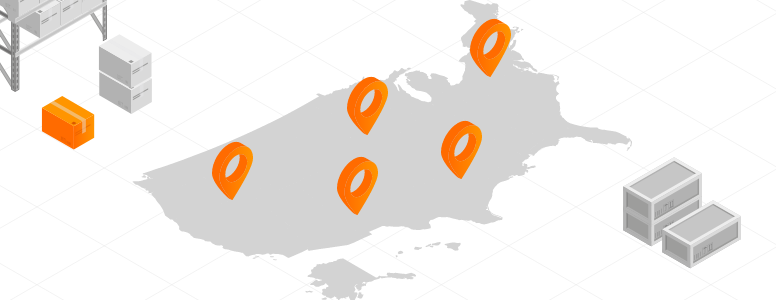
To wrap up the licensing process, you'll need to physically register a process agent for each state in which you plan on operating or writing contracts. This information needs to be submitted to the FMCSA by using Form BOC-3. While you'll likely register yourself as a processing agent for your home state of operation, you'll need to name a different process agent for each state where you do business. You may not list yourself as the process agent for every state.
8. Set Up Your Office
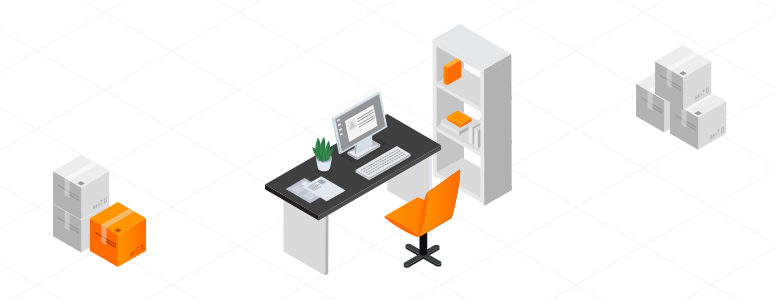
Next, you'll want to get your office established. This can be a home office or an outside physical office location, depending on your preferences. Either way, you'll need to invest in some basic pieces of equipment. These include:
- Computer
- Fax
- Copier
- Printer
- Phone
- Freight brokering software
- Load board software
- Strong and reliable internet connection
To be a successful freight broker, you'll need to invest in two key software programs. First is the freight brokering software, which helps to track vital information following federal recording requirements. The second is load board software, which is necessary for finding carriers.
9. Find Shipper and Carrier Clients

Once your physical office is established, it's time to start creating relationships with both shippers and carriers. The load board software is going to be your key source for finding quality carriers to work with. When it comes to finding shippers, there are various options out there.
If you have some industry experience, then you probably have some past contacts that you can call on. If you don't, there are various forums and online directories as well as Facebook groups that will provide you with some shippers that you can contact. Also, consider investing in a quality marketing strategy to bring more potential clients to you.
10. Start Brokering Freight

You are now a freight broker and can get started!
Once you’ve completed all of the above-mentioned requirements and steps, you should be prepared to act as a freight broker in full capacity.
Congratulations and good luck!



